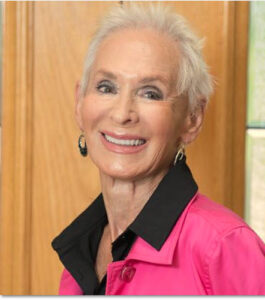

When we talk about age in the human sense—not about furniture or grandma’s antiques—it’s important to recognize that it’s nothing more than a record keeper. Age is a chronological marker that notes the events of our lives: birth, school, marriage, jobs, retirement, and beyond. That’s it. That’s all it can do.
Our age has no power over how we look, feel, or function. It doesn’t make us weak, unhealthy, or unattractive. Yet, our culture often treats it as though it does.
Our culture is out of touch with reality. It assigns meanings to age that are often unrealistic and wrong. In relationships, it is often assumed that a man should be older than a woman. Why?
Our culture has other established norms. For example, a man at age 60 is called “old”. He’s often referred to as elderly. At age 62, or before, he qualifies for Social Security. An accepted social norm for him is that at retirement, the expected thing to do is to kick back and live a leisure-oriented lifestyle. Why not a revitalizing, productive lifestyle after retirement as the norm? Why not? A logical reason is that the powerful retirement culture is big business. It’s built and flourishes under the assumption that old people can always be sold something they may not really need.
The Cultural Trap of “Norms” and Expectations
Our society, in so many ways, supports a horse-and-buggy mindset that assigns stereotypes to every age bracket. For women in midlife (40s and 50s), the expectation is clear: a body out of shape, droopy jowls, lines appearing on the face, and energy slipping away. How and why was that norm developed and accepted?
But Father Time isn’t the culprit here. It has no ability to affect anything. Time simply ticks along, keeping a record of life’s events. What is critical is something else entirely—the process of aging and how it is managed.
Aging: A Process We Can Influence
Unlike age, our aging is a process—and we have an amazing amount of control over it. Aging begins much earlier than most people realize. By our 30s, we often notice the first subtle signs: a gray hair, a fine line, a wrinkle beginning to form. Before the age of 30, the mind and body are in a state of development. Once that’s completed, the decline process activates.
That’s when having a consistent, thoughtful lifestyle makes the biggest difference.
I learned this firsthand in my 30s. Inspired by J.I. Rodale, the founder of Prevention magazine, I began taking his advice and the supplements he recommended—rose hips, kelp, dolomite, and others. It was simple stuff compared to what we have now. Over time, I continued to use newer, research-backed supplements. Early on, I worked out daily with fitness pioneer Jack LaLanne, who had a daily exercise program on TV. He was often accompanied by his dog, Happy. I bought his exercise gadgets (and many others advertised over the years)—and I used them.
I believed—and still believe—that aging is absolutely manageable if we choose to engage with it early and consistently.
The Power of Fierce Determination
People used to tell me that I was “crazy” for being so devoted to healthy living. Today, I’ve proved them wrong. The truth is simple:
Over time, you become the result or product of what you do and have done – your diet, exercise, lifestyle, your unspoken internal thoughts and beliefs. You become what you consistently do, think about, and live.
But simple doesn’t mean easy. Human nature leans toward comfort, indulgence, and shortcuts—all of which accelerate decline. That’s why it takes fierce determination to build the habits that protect us against premature aging.
Small Choices, Big Results
The sooner you take ownership of your aging process, the better. In part, success depends on:
- Your desire for improvement.
- Your stick-to-itiveness—the ability to keep going when it’s easier to quit.
- Your willingness to move your body daily, even with simple exercises.
- Your commitment to eating real, nourishing food.
- Your choice to invest in supplements and practices that support health.
- Your ability to manage alcohol consumption. Over time, especially in women, excess alcohol eventually shows up as a gray, tired complexion that cosmetics can’t hide.
- A spirit of joy and generosity toward self and others shows up on the face.
Your mind and body naturally crave health. They respond positively to care, consistency, and love.
Taking Charge of Your Future
As long as you’re alive and able to think for yourself, you can shape your future. Don’t let peers, culture, or outdated stereotypes dictate what you “should” look like or how you “must” live at a certain age. Question and reject what doesn’t make sense to you.
Understand that you have a subconscious brain. It listens to everything you say or think about yourself. and will help you get what it thinks you want. It’s your “humble servant.” If you tell yourself often enough, “I can’t or I’m not good enough” to get what you want, that’s what you will get – you reap what you sow.
Mini-miracles are possible. You can remain vibrant, capable, and independent, even as others—who didn’t prepare—struggle with sickness, dependency, and decline.
You deserve the best. You deserve vibrant health. Most of all, you deserve to be in charge of your own life—no matter your chronological age or what outdated social standards mandate. You CAN do it!
Oh my gosh, Barbara! Another gem of a reality check! We are the only ones responsible for how we navigate the seasons of our life. Aging is inevitable, however, decline is not. Thank you for continuing to be that voice that reminds us that it is all up to us!